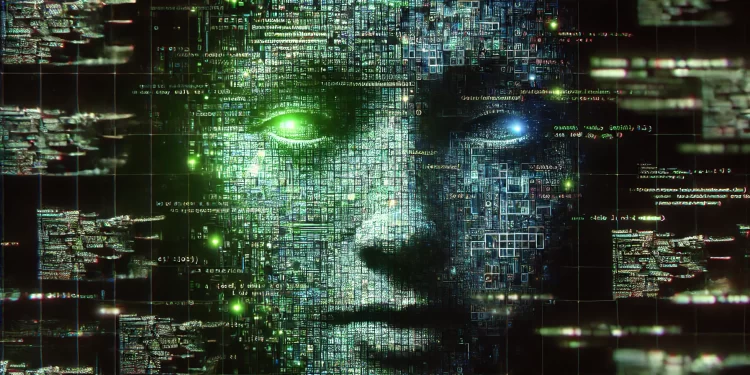Artificial intelligence (AI) has undeniably revolutionized the modern world, raising a fundamental question: Can machines actually think? While AI is designed to replicate human tasks and behaviors, its cognitive abilities remain a topic of intense debate. Does the current technology possess the capacity for true thought, or is it merely an impressive simulation?
The Nature of Thinking
Thinking, a process humans engage in every moment, is surprisingly hard to define. Philosophers like Plato and Aristotle have grappled with this for centuries, attempting to understand how the brain processes information. In its simplest form, thinking involves problem-solving, reasoning, and judging, often without the need for direct sensory input. Cognitive science has advanced our understanding of thinking, yet it remains uniquely complex, tied to emotional experiences, memory, and the capacity for creativity.
Machines, on the other hand, follow predefined algorithms. Even advanced AI models, such as large language models (LLMs) and art generators, function through data analysis and pattern recognition rather than original thought. These systems process vast amounts of information to generate responses or create visual outputs, but do not truly think in the human sense.
How Does AI Operate?
AI operates based on pre-existing data. When you input a question into a system like a large language model, it processes the data and predicts the most appropriate response by analyzing patterns in language and context. This allows AI to simulate human-like conversation but without genuine understanding. Similarly, AI art generators blend patterns and styles from existing works to produce images, yet they lack the creative impulse that drives human artistry.
For example, AI art systems can analyze thousands of images and produce new compositions. While this mimics artistic processes, human creativity often stems from emotional or existential triggers—something machines do not experience. In this sense, AI functions as a tool for mimicry rather than true innovation.
The Illusion of Intelligence
At the heart of the debate is whether AI can ever achieve artificial general intelligence (AGI)—the ability to perform any intellectual task a human can. While some experts argue that AGI could be possible, others believe that true consciousness is beyond AI’s capabilities. Without a subjective point of view, AI will always fall short of human thought, no matter how sophisticated its responses may seem.
Human thinking is deeply rooted in subjectivity—an aspect machines lack. Our thoughts are shaped by emotions, memories, and personal experiences, factors that have developed over millennia of evolution. Machines, on the other hand, process information without bias or feeling, rendering their “thoughts” as mere computations rather than genuine reflections of the human mind. This difference raises an important question: Can AI ever truly become autonomous, or will it remain dependent on human input?
To dive deeper into the complexities of AI autonomy, explore this Curiosmos article on AI’s future in human society.
The Future of AI: Cooperation or Competition?
Despite these limitations, AI continues to integrate more deeply into our daily lives. We already see AI in search engines, voice assistants, and even home appliances. As technology advances, the possibility of merging human intelligence with AI becomes more tangible. Innovators like Elon Musk are pushing the boundaries of this idea, proposing neural interfaces such as Neuralink, which could enhance the connection between humans and machines.
The future could see humans and AI collaborating in unprecedented ways, combining the creativity and emotional depth of humans with the precision and processing power of AI. This partnership might unlock new levels of innovation across industries, from healthcare to education, but also raises ethical questions about control and autonomy.c
The Human Element Remains Key
While AI is a powerful tool capable of mimicking certain aspects of human thought, it lacks the critical elements of subjectivity, creativity, and emotional depth that define true intelligence. As advanced as these systems become, they will always rely on human input and inspiration. The future of AI lies not in competition but in collaboration with human intelligence, creating new possibilities while preserving the unique traits that make us truly human.
As we look ahead, the question remains: Will AI ever surpass the boundaries of human creativity, or will it forever be confined to mimicry? Only time will tell.











